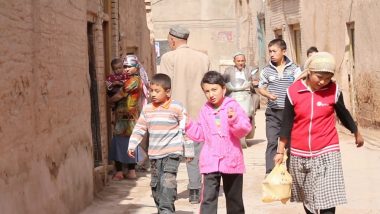After initially rubbishing reports of mass detention of Uighur Muslims, China’s Xinjiang provincial government has “legalised” detention camps. It is estimated that up to one million Muslims are being held in these camps for ‘re-education’.
Chinese authorities have revised legislation to allow the regional government to officially permit the use of “education and training centres” to incarcerate “people influenced by extremism”.
The revised rules, passed on Tuesday, call on local governments to tackle "terrorism" by establishing "vocational education centres" that will carry out the "educational transformation of people who have been influenced by extremism".
The centres should teach Mandarin Chinese, legal concepts and vocational training, and carry out "thought education," according to a copy of the rules posted on the regional government's web site.
The Uighurs are ethnically different than China’s Han majority population. They are a Turkic-speaking Muslim minority, who have lived in the vast and autonomous Central Asian border region of Xinjiang — or East Turkestan, as it is historically referred to by the Uighurs. There are around 11 million Uighurs living in Xinjiang, which means that almost one in 10 of them has been detained, according to the U.N.
The Uighurs are subject to repressive measures inside China, such as heavy surveillance, restrictions on movement, and prohibition of religious expression. In 2017, a previous version of the rules included a long list of prohibitions on religious behaviour including wearing long beards and veils.
Beijing has denied reports of the mass detention of its citizens in camps but Amnesty International had issued a report in August detailing the internment system, after interviewing over 100 families of those detained by Chinese authorities.
Travel abroad for work or education, particularly to majority Muslim countries, or contact with people outside China are also major reasons for suspicion. Male, female; young, old; urban, rural, all are at risk of being detained.
Members of Uighur, Kazakh and other Muslim minorities who live abroad say they have not been able to contact relatives in China, while authorities are placing children separated from their detained or exiled parents into dozens of state-run orphanages across Xinjiang.
Beijing has spent decades trying to suppress pro-independence sentiment in Xinjiang. Authorities say extremists there have ties to foreign terror groups but have given little evidence to support the claim.
(The above story first appeared on LatestLY on Oct 11, 2018 07:07 AM IST. For more news and updates on politics, world, sports, entertainment and lifestyle, log on to our website latestly.com).













 Quickly
Quickly


